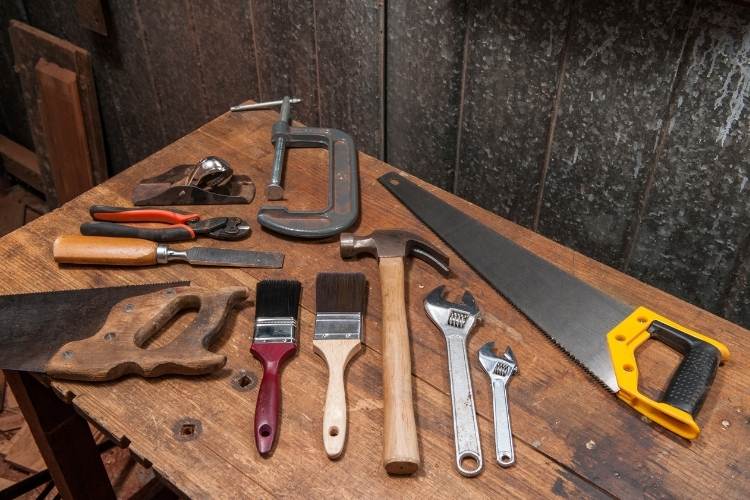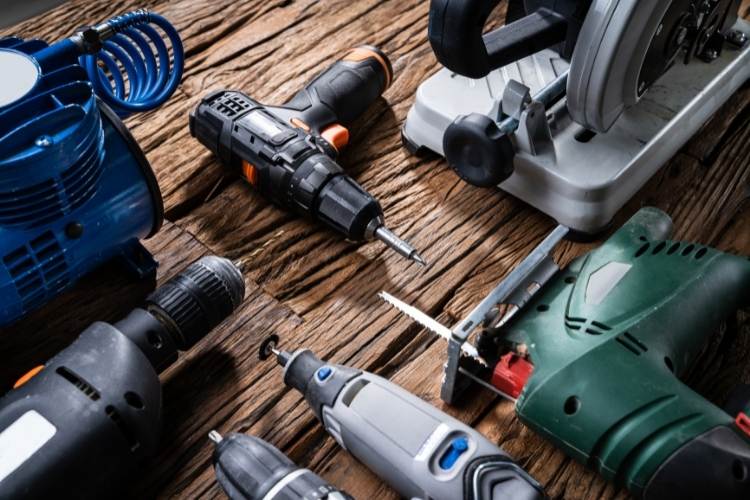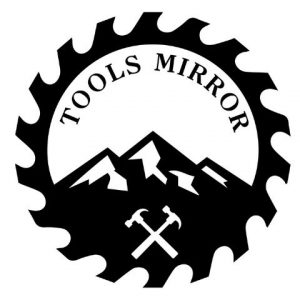You’ve probably seen it before – that old adage, “An ounce of prevention is worth a pound of cure.” Well, this adage could easily be applied to the current debate on hand tools vs power tools among home improvement experts. While some experts will go so far as to state that there are no real differences between power tools and hand tools, the opposite is true.
Similarly, anytime we, the common DIYer or homeowner, approach to choose any new technology or tool for our everyday duties, we have always engaged in a deep internal as well as exterior debate. This tendency is especially pronounced in the case of power tools.
Let’s look at the advantages and disadvantages of both power and hand tools together to clear up some misconceptions.
Hand Tools Vs Power Tools: What Is The Basic Difference?
Power tools are a complete home improvement tool kit. In terms of functionality, they can assist in completing any task faster and more effectively in order to obtain a decent outcome. When you need to do a task accurately or in a short amount of time, power tools are ideal. Despite the fact that they assist perform jobs faster, maintenance power tools are inconvenient. And also when you have lots of time on your hands to complete a project, power tools aren’t as important.
Hand tools, on the other hand, are a lot better in many circumstances. They are easier to use, and a lot less obtrusive. They are also easier to transport, maintain, and store. Hand tools are extremely practical tools, you can use them anywhere without tense of the availability of a power source. In some cases, as wood carving works, hand powered tools can provide superior control and precise work than power tools.
To summarize, power tools are powered by a source of energy (such as a battery or electricity), whereas hand tools are powered by human effort. As a result, power tools function quickly and efficiently, while hand tools work slowly and steadily.
Read Also: 7 Amazing Benefits Of Using A Power Nail Gun
Hand Tools: A General Brief
Hand tools have been used by humans since the Stone Age. It was a remarkable invention by humans that brought civilization into today’s shape.
This day hand tools are the most used tool in the home for DIY projects. You can use them for all kinds of projects, from simple tasks like tightening screws to more complicated ones like building entire rooms. They are very useful in your daily life, too, for tasks like tightening cabinet doors or fixing things around the house.
“Any tool that is powered by hand rather than a motor is a hand tool. Some categories of hand tools are wrenches, pliers and cutters, files, struck or hammered tools, screwdrivers, vises, clamps, snips, hand saws, drills, and knives. Outdoor tools like garden forks, pruning shears, and rakes are also kinds of hand tools. Portable power tools, however, are not hand tools.”
Wikipedia
Read Also: Hand Tools Or Power Tools Are Most Effective To Carve A Face In Wood?

Hand Tools: Pros And Cons
Hand tools are the most popular way to do DIY projects. They are very helpful if you are planning to do some remodeling or home improvement at home. However, they have also their advantages and disadvantages, and it’s important to consider these pros and cons when choosing tools.
Benefits Of Hand Tools
- One of the main advantages of owning hand tools is that there are no mechanical or electronic elements to break. Hand tools are fairly simple, with only one or two parts in most cases, making them less likely to break. They’re also simple to replace and keep up with.
- Because hand tools have fewer moving parts than powered equipment, they tend to survive longer.
- Hand tools also allow users to have more control over the tool’s movement, which is perfect for wood carving and other jobs requiring precise precision. When it comes to hitting the materials, humans have a better intuition than machines of when they need to go faster or slower.
- Because hand tools are more simple and do not contain all of the sophisticated elements, they are less expensive than power tools.
- They are more in tune with the natural world. When cutting material with a hand tool, no hazardous fumes are used; instead, the material is cut in a more gentle and sustainable manner.
- They’re useful in a variety of situations. For example, you can prune trees at remote locations in your garden using a hand saw, you can use a hammer on a rainy day, a screwdriver on a bright day, and hand saws in an off-grid area where there is no electricity or gas.
- Finally, hand tools are much quieter than power tools, which can provide you and your neighbors with peace of mind while working. In addition, hand tools are safe to use around children, pets, and other people.
Drawbacks Of Manual Tools
- Hand tools are less accurate than power tools because they require human power and don’t move at the same high speeds as power tools can. For example, flushing a nail into a piece of lumber when using a hammer can take two or three hits, but driving a nail when using a nail gun requires just one press of a finger on the trigger.
- Hand tools are unable to provide a consistent power supply throughout the duration of the job. When you first start working with a hand tool, you can devote all of your energy to it, but this gradually diminishes as humans become fatigued over time.
Read Also: What order should I buy woodworking tools?
Power Tools: A General Brief
A power tool, in my opinion, is a mechanical device used to cut, drill, and drive screws in various materials. Engineers devised power tools to make humans’ jobs easier. The Lathe is the first sort of power tool, having been used by the ancient Egyptians.
For numerous home repair projects, power tools are now commonly used. A power tool is an electric motor-driven tool that uses electricity or a battery to operate. We also see internal combustion engines or compressed air be used as a power source.
Power saws, power hammers or nail guns, and power drills are the few most prevalent forms of power tools. Power saws are commonly used to cut big amounts of lumber or to demolish construction materials. Power drills and nail guns are utilized in a variety of applications, including woodworking, metallurgy, and electrical work.
They’re now tremendously handy in a number of tasks that would be difficult or impossible to complete without them. They’ll let you do chores in the same way that manual tools do. Power tools, on the other hand, make it easier to complete a task (with less effort).
Read Also: What are the different types of nail guns?

Power Tools: Pros And Cons
Power tools have a lot to offer when it comes to do-it-yourself projects. They are incredibly useful for a variety of home improvement tasks, including carpentry, masonry, and painting, and for doing various DIY projects around the house. Of course, they have a lot of advantages over hand tools, but there are some disadvantages to them as well, which makes their use in some projects ill-advised.
Benefits Of Power Tools
- The ability to perform any task is a major advantage of employing power tools. Power tools allow us to complete tasks more efficiently and simply than hand tools, and they even enable us to complete things that would be practically impossible with manual equipment. For example, if you want to break any rock-solid surface, such as a concrete slab, there is no better option than a jackhammer.
- Power tools can help us complete tasks considerably more quickly than manual equipment. For example, you can drive 100 nails in a minute or two (consider driving 3 nails per second in rapid fire mode) or cut a long piece of board with a circular saw in a fraction of the time it takes with a hand saw.
- Hand tools are supposed to be more accurate than power tools, but when you need to repeat a process, you’ll find power tools to be more precise. If you need to drill the same hole in a piece of board multiple times, a drill press will be more precise than a hand drill bit. A manual drill, on the other hand, is regarded as the greatest option for drilling a small hole in a delicate piece of material.
- Power tools can give you an unbroken and constant power source because there is no chance of muscular exhaustion. Power tools are powered by electricity, batteries, gas, or an air compressor. As a result, you’ll be able to work for longer periods of time and finish jobs faster than if you used manual equipment.
- Power tools are more cost-effective than hand tools, despite their higher initial cost. You can boost your productivity by using the power tool, which saves you a lot of time and energy, as well as money in the long run.
- A power tool’s learning curve is less steep than that of a manual tool. You can utilize them right away after viewing the operational method. They’re simple to utilize and can provide you with great flexibility.
Drawbacks Of Power Tools
- Power tools need to be connected to a power source, which means they can’t be used if the power goes out or the batteries run out.
- These tools also have a higher number of mechanical parts, making them more prone to failure.
- Though both hand and power tools carry risks, power tools are more dangerous because of how they are designed. As a result, safety equipment should be utilized.
- Because of their numerous elements, power tools are often noisier than manual tools. As a result, it is recommended that you use ear protection while using them.
Read Also: Is Woodworking An Expensive Hobby?
Power Tools Vs Hand Tools: Which One Should Homeowner or DIYer Choose?
To answer this question, let’s recap the advantages and disadvantages of power and hand tools once more.
- Power tools are generally faster and more convenient but a bit more expensive than hand tools. Therefore, you will find power tools more suitable for large projects.
- Power tools are the obvious choice for the DIY enthusiast trying to save money. However, if you have a small project you can save a lot of time and energy by using a hand tool.
- Hand tools are of course more manual so you have to put a little more effort into a project.
- Hand tools can be a good choice for a newbie trying to learn a craft.
- No matter if you have a hand or power tool, you have to maintain safety measures.
Ultimately, both the power and hand tools have their own pros and cons. As a result, the decision of whether or not to use a power or hand tool will depend on the nature of the job, the level of accuracy, and the speed required to complete it.
FAQ On Hand Tools Vs Power Tools
Q. How do maintain hand tools and power tools properly?
Hand tools and power tools require maintenance to keep them working properly for a long time. Hammer is a tool commonly used in construction. It is made of a metal head with a wooden handle. Hammer is used to driving nails, hold objects and remove nails. Hammer must be kept clean and rust-free to ensure that it can last for a long time.
The most basic way to clean the hammer is to wipe it with a cloth after use. You can also dip the head of the hammer into a container with a mixture of turpentine and kerosene. This will ensure that the head of the hammer is clean and rust-free. For more thorough cleaning, the head of the hammer can be removed from the handle and placed into a mixture or brush with a wire brush.
To maintain a power tool, such as a pneumatic nail gun, you have to lubricate it properly and regularly. You must also keep it free of dust and debris and clean it thoroughly at regular intervals. Click here to read our post on how to maintain your pneumatic tools in the winter for more information on power tool maintenance.
Q. What are the hazards of using hand tools?
Hand tools are used to complete tasks that would otherwise need the usage of machinery. In this instance, you may do the task, but if you are not careful, your hands will be injured. The tools’ sharp edges have the potential to cut you or another person’s finger. The common hand tools injuries are cuts, lacerations, and puncture wounds, which can be deadly.
Q. Why power tools are more hazardous than hand tools?
Power tools are more hazardous than hand tools because the power of the motor makes them more powerful and gives them greater amounts of torque and impact, putting you at more risk of injury.
Conclusion
In conclusion, the choice between a hand tool and a power tool is a very personal one. I think that at the end of the day, it all depends on the circumstances. A power tool will always be more convenient, but a hand tool will always be more personal.
Related Reviews:
- 10 best framing nailers for home remodeling
- 15 best cordless drills for home use
- 15 Best Router Bits For Wood Carving And Joints
- 10 best finish nailers for woodworking
- 10 best brad nailers for trim work
- 15 Best Portable Inverter Generators For Home & RV Use
Recent Posts
Woodworking in 2025 is all about efficiency, precision, and smart technology. Whether you're a beginner or a seasoned craftsman, having the right tools can make all the difference. Here are the top 7...
Ever tried drilling into a piece of wood only to end up with a splintered mess or a wobbly hole? Yeah, it's more common than you think. Wood might seem like an easy material to work with, but...

